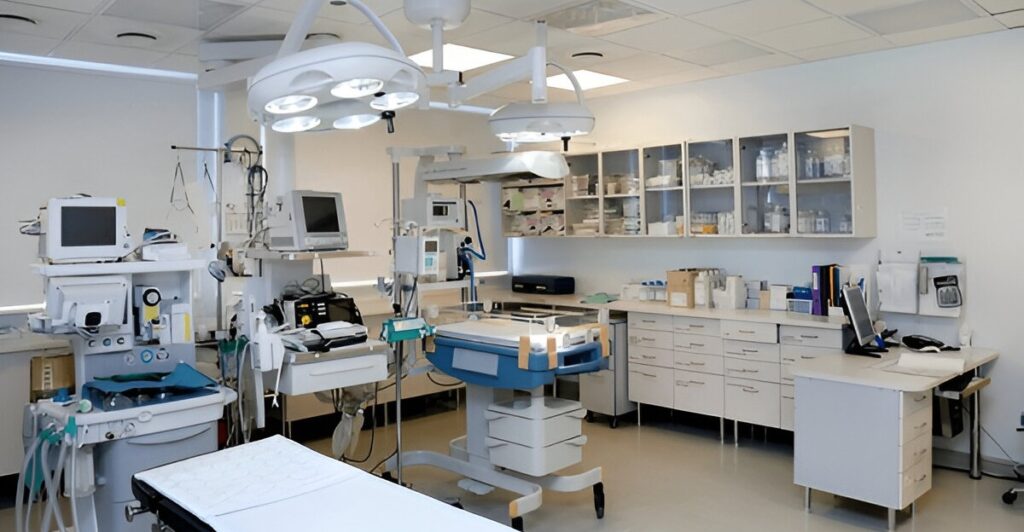When you hear about a “Ministry of Health,” you might picture government officials making decisions about hospitals or vaccines. But what exactly is the ministry of health role in a country? A Ministry of Health is a vital government body that shapes the health and well-being of entire populations. From crafting policies to managing disease outbreaks, its responsibilities are vast and impactful. This complete guide explores the roles, operations, impact, challenges, and global examples of a Ministry of Health, making it easy for anyone to understand its significance.
What Is a Ministry of Health?
A Ministry of Health is a government department responsible for overseeing a country’s healthcare system and public health. It acts as the central authority for public health policy, ensuring that citizens have access to quality medical care, disease prevention programs, and health education. In some countries, it’s called the Department of Health or a similar name, but the core mission remains the same: to protect and improve population health.
Think of the Ministry of Health as the conductor of a healthcare orchestra, coordinating hospitals, clinics, healthcare professionals, and public health initiatives to create harmony in health services. Its health ministry functions touch every aspect of life, from ensuring clean water to regulating medicines.
Key Roles of a Ministry of Health
The ministry of health role is multifaceted, encompassing a wide range of responsibilities. Here are the primary functions:
Developing Public Health Policy
The Ministry creates policies to address health challenges, such as reducing obesity or improving maternal care. These policies set guidelines for healthcare providers and shape national health priorities.
Regulating Healthcare Systems
Ministries oversee hospitals, clinics, and other facilities to ensure they meet safety and quality standards. This includes licensing doctors, approving medical equipment, and inspecting healthcare facilities.
Managing Disease Prevention and Control
From vaccination campaigns to outbreak response, the Ministry leads efforts to prevent and control diseases. For example, during a flu season, it might distribute vaccines and educate the public on hygiene.
Overseeing Healthcare Funding
The Ministry allocates budgets for healthcare services, deciding how funds are distributed to hospitals, research, or public health programs. In some countries, it manages national health insurance systems.
Promoting Health Education
By running campaigns on topics like smoking cessation or mental health, the Ministry raises awareness and encourages healthy behaviors among citizens.
Ensuring Access to Essential Medicines
Ministries regulate the production, distribution, and pricing of medications, ensuring they are safe, effective, and affordable.
Coordinating Emergency Response
During crises like pandemics or natural disasters, the Ministry organizes healthcare responses, such as setting up temporary clinics or distributing supplies.
These roles collectively ensure that the healthcare regulation and public health systems function smoothly, benefiting everyone in society.
How a Ministry of Health Operates
The operations of a Ministry of Health involve collaboration with various stakeholders, including government agencies, healthcare providers, and international organizations. Here’s a simplified look at how it works:
- Policy Development: The Ministry researches health trends, consults experts, and drafts policies to address current and future needs.
- Implementation: Policies are rolled out through regulations, funding, or public campaigns. For example, a policy to reduce heart disease might fund free cholesterol screenings.
- Monitoring and Evaluation: The Ministry tracks the impact of its initiatives, using data to assess whether goals, like reducing infant mortality, are being met.
- Collaboration: It partners with organizations like the World Health Organization (WHO) or local governments to align efforts and share resources.
- Public Communication: The Ministry informs citizens about health policies, risks, and services through media, websites, or community outreach.
This structured approach ensures that the ministry of health role is proactive, responsive, and aligned with national health goals.
Impact of a Ministry of Health on Society
The health ministry functions have a profound impact on individuals and communities. Here are some ways they make a difference:
Improved Health Outcomes
By prioritizing preventive care and access to treatment, Ministries reduce disease rates and increase life expectancy. For instance, vaccination programs have eradicated diseases like smallpox in many regions.
Enhanced Healthcare Access
Ministries work to ensure that even remote or underserved areas have access to clinics, doctors, or mobile health units, reducing health disparities.
Economic Benefits
A healthy population is more productive, and effective health policies reduce the economic burden of untreated illnesses. For example, early cancer detection saves costs on advanced treatments.
Crisis Management
During pandemics or disasters, the Ministry’s swift actions, like distributing masks or setting up quarantine zones, save lives and maintain public trust.
Public Empowerment
Health education campaigns empower people to make informed choices, such as eating healthier or seeking mental health support.
The ministry of health role is thus a cornerstone of a thriving, equitable society.
Challenges Faced by Ministries of Health
Despite their critical role, Ministries of Health face significant challenges that can hinder their effectiveness:
Limited Funding
Healthcare is expensive, and many Ministries struggle to secure enough funding for hospitals, staff, or research, especially in low-income countries.
Workforce Shortages
A lack of trained doctors, nurses, or public health workers can strain the system, leading to overworked staff and reduced care quality.
Political Pressures
Health policies can become politicized, with decisions influenced by public opinion or lobbying rather than scientific evidence.
Rapid Health Threats
Emerging diseases, like new viruses, or rising rates of chronic conditions, like diabetes, require quick adaptation, which can overwhelm resources.
Inequitable Access
Ensuring healthcare reaches rural or marginalized communities remains a challenge, particularly in large or diverse countries.
Technology Integration
Adopting new technologies, like electronic health records, requires significant investment and training, which some Ministries struggle to provide.
Addressing these challenges requires innovative solutions, such as public-private partnerships or leveraging digital health tools, to strengthen health system oversight.
Global Examples of Health Ministry Functions
To illustrate the ministry of health role, let’s look at a few global examples:
United Kingdom
The Department of Health and Social Care oversees the National Health Service (NHS), funding hospitals and setting standards for care. It runs campaigns like “Change4Life” to promote healthy lifestyles.
India
The Ministry of Health and Family Welfare manages programs like Ayushman Bharat, which provides health insurance to millions, and coordinates disease control efforts, such as polio eradication.
Brazil
The Ministry of Health runs the Unified Health System (SUS), offering free healthcare to all citizens. It also leads anti-malaria campaigns in rural areas.
Nigeria
The Federal Ministry of Health focuses on improving maternal and child health through initiatives like free prenatal care and vaccination drives.
These examples show how Ministries adapt their public health programs to local needs, demonstrating the universal importance of their role.
Conclusion
The ministry of health role is central to building healthier societies. By developing policies, regulating healthcare, managing diseases, and promoting education, Ministries ensure that citizens have access to quality care and resources. While challenges like funding shortages or workforce issues persist, their impact on health outcomes, economic stability, and public empowerment is undeniable.
Whether you’re a student exploring public health or a citizen curious about government roles, understanding what a Ministry of Health does is a step toward appreciating the systems that keep us well. Want to learn more? Explore our related articles on public health basics or healthcare funding explained for deeper insights.


